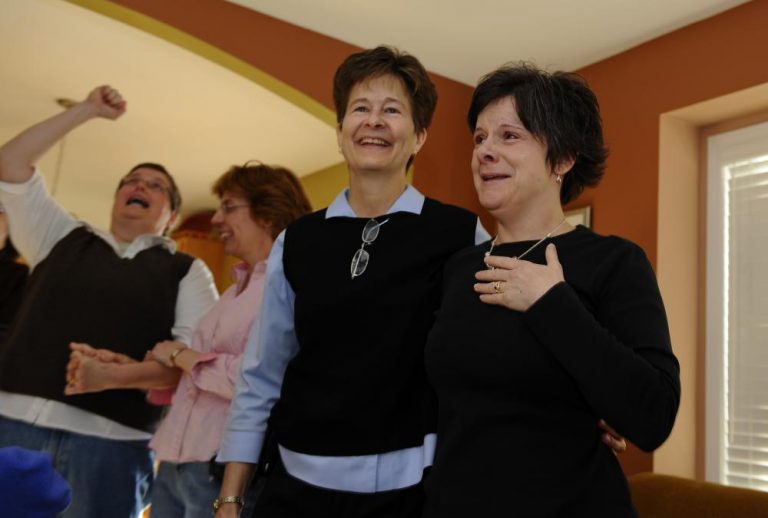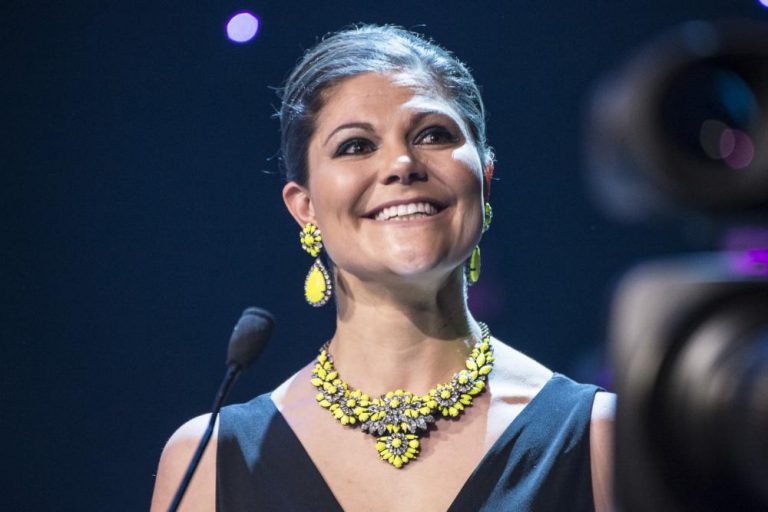The court said depriving gay couples of access to marriage violates the Iowa Constitution’s guarantee of equal protection under the law.
The ruling is likely to stand. Any amendment to the Iowa Constitution to undo the decision would require passage by the Legislature in two separate sessions, followed by voter ratification, at the earliest, in 2012. However, the leaders of both houses of the Legislature issued a joint statement making it clear they support the court’s decision.
In its ruling, the court said: ”Our responsibility … is to protect constitutional rights of individuals from legislative enactments that have denied those rights, even when the rights have not yet been broadly accepted, were at one time unimagined, or challenge a deeply ingrained practice or law viewed to be impervious to the passage of time. …
”We are firmly convinced the exclusion of gay and lesbian people from the institution of civil marriage does not substantially further any important governmental objective. The legislature has excluded a historically disfavored class of persons from a supremely important civil institution without a constitutionally sufficient justification.
There is no material fact, genuinely in dispute, that can affect this determination.
”We have a constitutional duty to ensure equal protection of the law. …. If gay and lesbian people must submit to different treatment without an exceedingly persuasive justification, they are deprived of the benefits of the principle of equal protection upon which the rule of law is founded. …
”(T)he language in Iowa Code section 595.2 limiting civil marriage to a man and a woman must be stricken from the statute, and the remaining statutory language must be interpreted and applied in a manner allowing gay and lesbian people full access to the institution of civil marriage.”
Lambda Legal’s Camilla Taylor, lead architect of the lawsuit that led to the decision, called the victory ”a testament to the strength of love, hope and courage.”
”Our clients have shown an abundance of all three for many years and now at long last they will be able to marry,” she said. ”This will go down as another proud day in Iowa’s long history of protecting individual rights.”
Iowa has no residency requirement for marriage, but does have a three-day waiting period between applying for a license and receiving it, unless a couple pays a $5 fee and a judge signs a waiver.
In a strongly supportive statement, Iowa Senate Majority Leader Mike Gronstal and Iowa House Speaker Pat Murphy indicated there is little chance the Legislature will attempt to override the ruling by beginning the process of amending the constitution.
”Thanks to today’s decision, Iowa continues to be a leader in guaranteeing all of our citizens’ equal rights,” the leaders said. ”The court has ruled today that when two Iowans promise to share their lives together, state law will respect that commitment, regardless of whether the couple is gay or straight. When all is said and done, we believe the only lasting question about today’s events will be why it took us so long. It is a tough question to answer because treating everyone fairly is really a matter of Iowa common sense and Iowa common decency. Today,
the Iowa Supreme Court has reaffirmed those Iowa values by ruling that gay and lesbian Iowans have all the same rights and responsibilities of citizenship as any other Iowan.”
Gronstal and Murphy also said the ruling continues a long tradition in Iowa.
”In 1839, the Iowa Supreme Court rejected slavery in a decision that found that a slave named Ralph became free when he stepped on Iowa soil, 26 years before the end of the Civil War decided the issue,” they said. ”In 1868, the Iowa Supreme Court ruled that racially segregated ‘separate but equal’ schools had no place in Iowa, 85 years before the U.S. Supreme Court reached the same decision. In 1873, the Iowa Supreme Court ruled against racial discrimination in public accommodations, 91 years before the U.S. Supreme Court reached the same decision. In 1869, Iowa became the first state in the union to admit women to the practice of law. In the case of recognizing loving relationships between two adults, the Iowa Supreme Court is once again taking a leadership position on civil rights. Today, we congratulate the thousands of Iowans
who now can express their love for each other and have it recognized by our laws.”
Same-sex marriage also is legal in Connecticut and Massachusetts. It was legal in California from June to November 2008, when voters amended the state constitution to stop gay couples from marrying. The constitutionality of the amendment — and the status of 18,000 same-sex couples who married in California last year — are now under review by the California Supreme Court, with an opinion due no later than early June.
Uppdaterad 2016-11-16
Hjälp oss att komma ut
För att QX som månads- och nyhetstidning skall kunna fortsätta ge röst åt regnbågssamhället i hela sin fantastiska bredd behöver vi ditt stöd!
Som prenumerant får du månadstidningen digitalt före alla andra och du kan även välja att få den hemskickad. Med ditt stöd kan vi fortsatt komma ut!







